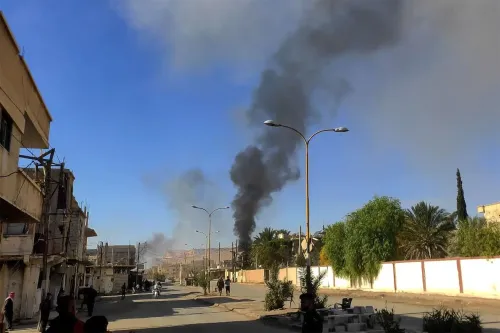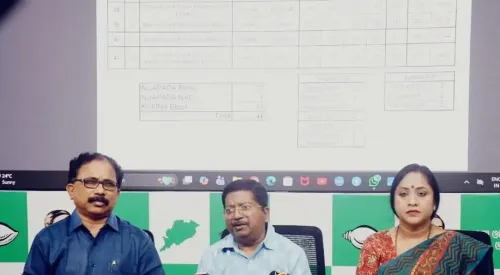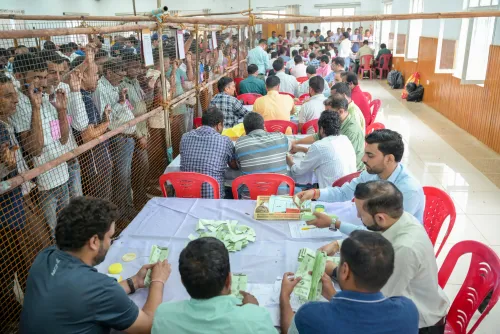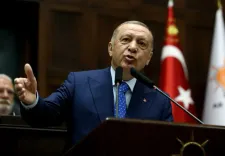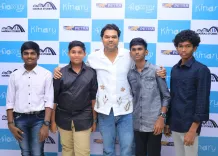Why Did the Karnataka HC Decline to Quash Summons to Former CM Yediyurappa?
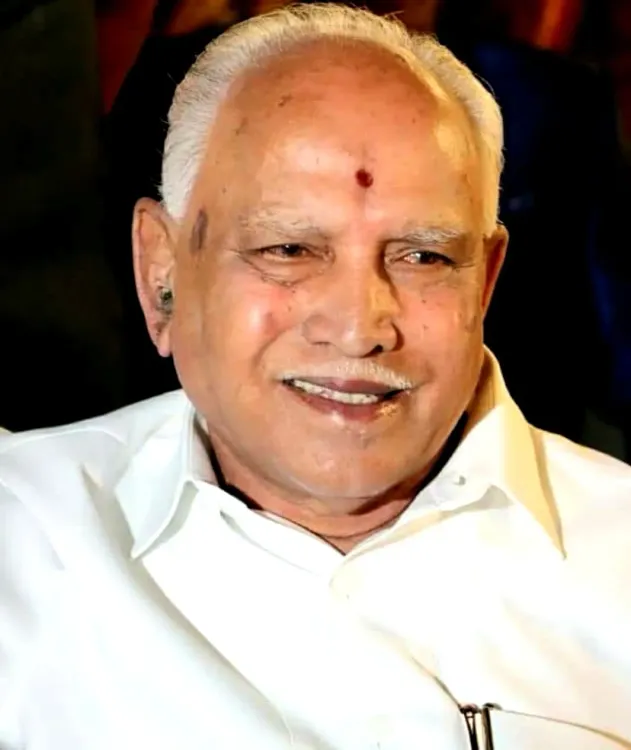
Synopsis
Key Takeaways
- The Karnataka High Court upheld summons against B.S. Yediyurappa.
- The case involves serious allegations under the POCSO Act.
- Yediyurappa has denied all accusations, citing a desire to help.
- The legal proceedings highlight the intersection of politics and justice.
- The court allows for potential exemptions in personal appearances.
Bengaluru, Nov 13 (NationPress) - The Karnataka High Court has, on Thursday, chosen not to dismiss the summons issued by a Fast Track Court to former Chief Minister B.S. Yediyurappa in connection with a case filed under the Protection of Children from Sexual Offences (POCSO) Act. Yediyurappa stands as the principal accused in this matter.
A single-judge bench, presided over by Justice M.I. Arun, rejected the request to overturn the trial court's ruling that took cognisance of the case, thereby mandating Yediyurappa's appearance for trial once the charge sheet is officially recorded.
Nonetheless, the bench instructed the lower court to allow the former CM an exemption from appearing in person whenever his presence is not essential, and indicated that Yediyurappa could submit a separate petition to request such relief.
The Fast Track Court had issued a summons for Yediyurappa and three others on February 28, 2025. In his plea to quash the cognisance order, the FIR, and the charge sheet, Yediyurappa contended that the trial court had not adequately considered the case, and noted that the High Court had previously annulled an earlier order from the same court.
Senior counsel C.V. Nagesh, representing Yediyurappa, highlighted discrepancies in the timeline of the complaint, stating that the alleged incidents on February 2 and 5, 2024 were not reported until March 14, 2024, amid a backdrop of political unrest. He also mentioned that witnesses at the scene had denied any misconduct.
Countering this, Senior Public Prosecutor Prof. Ravivarma Kumar asserted that the trial court had taken cognisance after thoroughly reviewing the available evidence.
The charge sheet reveals that Yediyurappa, along with three others, faces accusations under the POCSO Act and certain sections of the IPC, including 354(A) (sexual harassment), 204 (destroying a document or electronic record), and 214 (offering a bribe to conceal an offence).
The prosecution claims that the complainant approached Yediyurappa’s residence seeking assistance for an alleged sexual assault on her 17-year-old daughter. The charge sheet alleges that Yediyurappa held the girl’s wrist and molested her; it further states that the girl resisted and managed to escape.
Moreover, the charge sheet accuses Yediyurappa of summoning the complainant back after the victim posted a photo and video on social media, offering her Rs 2 lakh in cash, and having the images and video removed from social media and her iPhone gallery. The victim’s mother later passed away on May 26, 2024, in Bengaluru.
Yediyurappa has categorically denied these allegations. He stated that he offered assistance after observing a distressed mother and daughter near his residence, involved the Bengaluru police for support, and provided them with money after hearing their story. “If we come forward to help, these are the consequences we must face. I will confront everything,” he expressed.


